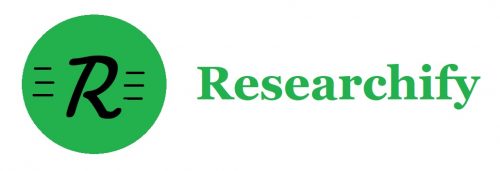If you are as old as I am you might remember buying music on vinyl records not because of the warmth of the sound or nostalgia, but because it was the only option. If you wanted to hear something new without purchasing it the local library would allow the loan of vinyl records as long as they were returned without scratches. The transition through various formats has brought us to a point where music aficionados can access most major musical outputs by streaming them directly, anything from classical overtures to death metal, and we are given the choice whether we accept the full output or just the single track we would like to hear. Similarly those of us who have been involved in academic research in a previous millennium will have remembered trips to a university library to leaf through bound copies of a monthly periodical. Whilst the Journals have become electronic and we don’t need to visit the library to access them, the publishers of academic journals are still acting like record labels; researchers who have published previously and have been cited frequently are strongly encouraged to submit their papers. Knowing an academic has produced popular work on a hot topic means they are likely to get the journal more citations and boost the impact factor, good news for both the publisher and the researcher. Starting out, a research career nearly always means teaming up with one of the established artists of research and the choice a prospective PhD student or postdoc makes can be the most critical aspect of their career success.
Open access publishing gives everyone with the internet access to research published through the open access journals. So in some respects open access is like Spotify for research papers but unlike Spotify the researchers themselves, or indirectly their funders, pay to release the papers. Whilst the returns for most of the musicians who put their work out on Spotify are minimal at least it is those who are in receipt of the goods that pay. When national governments are the funders of research they can make open access publishing a requirement and as long as the grants incorporate this funding there shouldn’t be too much trouble. The problem is the majority of research is funded by a variety of other sources (https://royalsociety.org/~/media/policy/projects/eu-uk-funding/uk-membership-of-eu.pdf). Charities might not want to spend more money just to give away the data and findings they have paid for, and industrial sponsors of research are probably quite keen to make sure the research can stay under-wraps until the findings can be exploited for the commercial gain they have invested to receive. The most problematic issue currently is the mixture of types of journal, so even for data and findings that people want to share there is a ‘paid for’ and ‘pay to’ model. Appealing to the good nature of researchers to only publish in Open Access journals seems to be the current approach for the Open Science advocates, while the most morally upstanding and well-funded may see fit to do this, others who may be under significant pressures for their career might not feel so predisposed to act in community spirited altruism.
So what if there was one unified system where all publications could be submitted for free and institutions and individuals could pay a subscription to access all of that information, a Spotify for research? The economies of scale would be likely to mean the subscription charges could be kept to a level that institutions, research groups and maybe, even interested individuals could quite easily afford.
The current subscription model is already suffering an equivalent of home-taping, which incidentally didn’t kill the music industry, it probably didn’t even damage the profits of the major labels; when an academic sends a Twitter message to ask if someone in their network can share a pdf they are likely to get a positive response. This illicit sharing is as likely to end with the researcher asking their library if they can subscribe to the journal in the future as it is to the researcher asking the same associate to send multiple papers or issues of that journal.
There is an issue with Spotify for music, the most popular artists of our time receive a much greater proportion of the subscription revenue than when Record Labels paid artists by advances on their future albums. An artist who sells a 100,000 copies of their album on Spotify might only receive a fraction of what they need to live. However, the researchers don’t need the returns for paper views just that citations are recorded then this issue does not seem so important. Without the significance of the journal’s prestige influencing the number of citations then only the title, abstract and keywords will be needed to bring in the readers. Then it would really be down to the ingenuity and quality of the research that would determine the number of citations. Maybe the ‘Spotify of research’ does not need to stop there, it could become not only a repository for full papers but a place for academics to post their raw data and hypotheses, avoiding researchers hoarding together their findings for a paper of the greatest significance. The ideas and the data could still be cited showing the impact that the work has had. A thoroughly comprehensive system might even look to adapt the patent system so attribution for contribution and reward for ideas rather than resources could be made, but that’s for another time maybe.
The fundamentals of this system are already in place, Scopus and PubMed provide links to all the journal articles but are still just a conduit for the publishers to be paid for the journals that aren’t open access. By demanding a subscription for PubMed and this being used to pay the publishers a transition could be reached. Any journal that did not accept the terms offered would not have their journals on the system. It may require some brinksmanship in the first instance but ultimately less of the money for research would be diverted to a system that is a hangover from a less free information age. You never know there might even be a nostalgic resurgence of print copy journals that researchers can have on shelves in their office or go to a library to leaf through.
Dr Richy Hetherington
Lecturer, Graduate School, Faculty of Medical Sciences, Newcastle University


I did attempt to get this published. The Conversation were nice about it but said it was too specialised. WonkHE didn’t want to know. THES did show some interest but said they though Jstor were doing this already, I didn’t have the time to keep making the argument with the editors. If anyone would like to take the concept beyond this blog, I’m very happy for it to go out elsewhere.
Very interesting related editorial article by Marcus Munafo at https://academic.oup.com/ntr/article/19/7/773/3106460
Another related article in New Scientist claiming the profits of publishing houses are very large https://www.newscientist.com/article/mg24032052-900-time-to-break-academic-publishings-stranglehold-on-research/
https://www.theguardian.com/science/2017/jun/27/profitable-business-scientific-publishing-bad-for-science
Another article with some stark figures
The comparison with the record industry remains interesting, with the view that Spotify is bad for artists. Whether this would become an issue for researchers if such as system was adopted is an interesting question. However, it would seem academic publishing is still lagging behind where it could be
https://www.theguardian.com/culture/2020/nov/14/streaming-platforms-arent-helping-musicians-and-things-are-only-getting-worse
Spotify for research, what a concept… the ultimate open access for all! I didn’t realise how heavily journals rely on subscription revenue, it seems antiquated. Your idea of a spotify version would surely suit the researcher and create ‘competition’ for quality research, but I understand the sentiment that hankers towards the ‘it must sound better on vinyl’ approach. We long to bring our senses back into the things we do… now if my laptop could emit the smell of old library books when I open medline wouldn’t that be great!
I just read something which makes me surprised that the cost in rejecting a peer reviewed paper doesn’t push more research inappropriately to publication. Alas, it comes back around to the bottom dollar, but its transparency that surely should win in the end. This article is a start:
https://sciencebusiness.net/news/research-organisation-releases-publishing-costs-highlight-challenge-going-full-open-access
Claire I’m so sorry it took me so long to approve your post, I didn’t know I had to do that. I think I might switch that feature off, it seems a bit controlling. Thanks very much for the contribution and the link, it’s really important the issues of costs for publishing is addressed at the same time as we look at opening-up access. Dissemination is the cheapest part of research it shouldn’t be holding up progress.
What is the position of the editorial board of a journal? https://www.scienceguide.nl/2019/04/so-what-about-editor-compensation/
Will Plan S come to the rescue? https://www.coalition-s.org/
There maybe routes for researchers to publish in any journal and those journals may continue to charge a subscription but will have to make the article free for distribution under a creative commons licence. https://www.nature.com/articles/d41586-020-02134-6 but will the researcher be required to provide the article free and what will be the function of the journal if not exclusivity. Could it be that prestige is more important than exclusivity? If the Impact Factor is the most significant aspect of where an article is published then a virtuous circle for highly esteemed researchers, journals and editorial boards can remain in place.
Great post Richy! Love the idea for addressing the current issues with publishing and promotion, as well as the public getting access to research that their tax money supports.
Thanks very much Chris, we are running discussion groups on these topics https://workshops.ncl.ac.uk/fms/meta/
I think we will return to the subject of peer review and publication, I’m keen to ask…. can peer review be done with AI?
It seems that plenty of people are having similar thoughts but are academics who are comfortable in their position really intent on changing things?
https://researchwhisperer.org/2021/06/22/open-access-at-no-cost/